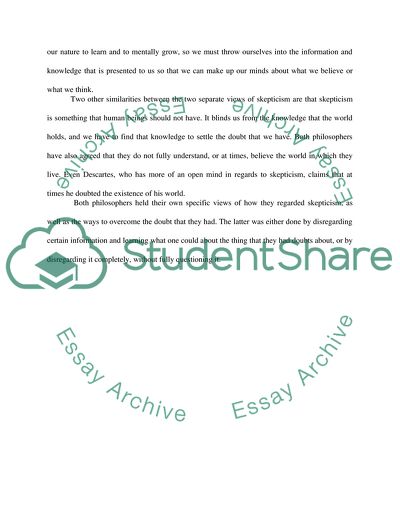Philosophy: Skeptcism(Descartes and Hume) Essay Example | Topics and Well Written Essays - 500 words. Retrieved from https://studentshare.org/miscellaneous/1546849-philosophy-skeptcismdescartes-and-hume
Philosophy: Skeptcism(Descartes and Hume) Essay Example | Topics and Well Written Essays - 500 Words. https://studentshare.org/miscellaneous/1546849-philosophy-skeptcismdescartes-and-hume.


